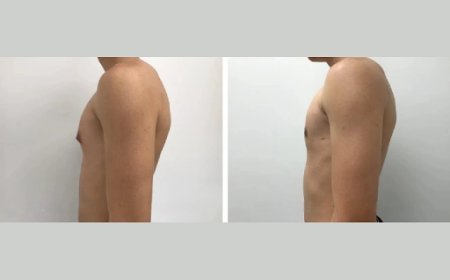How to Measure for New Windows and Doors: A Step-by-Step Guide Before You Call Your Supplier
This guide will help you understand the basics of how to measure for new windows and doors with precision.

Replacing your windows and doors is a significant investment in both the function and aesthetics of your home. Before reaching out to a window and door supply company, one of the most critical steps is measuring your openings accurately. Incorrect measurements can lead to delays, higher costs, and improper installation. Whether you're a DIY enthusiast or planning to hire a professional, this guide will help you understand the basics of how to measure for new windows and doors with precision.
Why Accurate Measurements Matter
Accurate measurements ensure the products you order from a window and door supply company fit perfectly, minimizing the need for adjustments or returns. A poor fit can lead to energy inefficiency, water intrusion, and difficulty opening or closing the unit. Precise measurements are also essential when ordering custom windows or doors.
Tools Youll Need
Before starting, gather the following tools:
-
Steel tape measure (preferably 25 feet or longer)
-
Level
-
Notepad or measuring worksheet
-
Pencil or marker
-
Ladder (for higher openings)
How to Measure for Replacement Windows
When replacing existing windows, the goal is to measure the opening without removing the frame. These steps assume the interior trim will remain and the replacement window will be inserted into the existing frame.
Step 1: Measure the Width
Measure the width in three locations:
-
Top
-
Middle
-
Bottom
Run the tape from jamb to jamb (the vertical sides of the window). Record all three measurements and use the smallest one. This ensures the new window will fit even if the opening is slightly irregular.
Step 2: Measure the Height
Next, measure from the head (top) of the window opening to the sill (bottom). Take measurements from the left, center, and right of the opening. Again, use the smallest number.
Step 3: Measure the Depth
To determine whether a standard window will fit, measure the depth of the window frame. Most replacement windows require at least 3 1/4 inches of frame depth.
How to Measure for New Construction Windows
New construction windows are typically used when the wall framing is exposed. These windows have a nailing flange and are secured directly to the framing.
Step 1: Measure the Rough Opening Width
Measure between the wall studs at three pointstop, middle, and bottom. Use the smallest measurement.
Step 2: Measure the Rough Opening Height
Measure from the header (top framing member) to the sill plate (bottom framing member) at three pointsleft, center, and right. Again, use the smallest number.
Step 3: Check for Square
Use a tape measure to check the diagonal measurements from corner to corner. If the measurements are equal, the opening is square. If not, note the difference and share it with your window and door supply professional.
How to Measure for Exterior Doors
Whether youre replacing or installing a new exterior door, accuracy is crucial for security, energy efficiency, and fit.
Step 1: Measure the Width
Measure the door slab onlynot the frame. Take three measurements across the door: top, middle, and bottom. Record the narrowest.
Step 2: Measure the Height
Measure from the top of the door to the bottom, excluding any weather stripping or thresholds. Take multiple measurements and use the shortest one.
Step 3: Measure the Thickness
Most residential doors are 1 3/4 inches thick, but always confirm by measuring the existing door.
Step 4: Measure the Rough Opening (if needed)
If you're ordering a pre-hung unit, measure the entire opening, including the frame. Measure the width between studs and the height from the subfloor to the top of the opening.
Step 5: Determine the Swing and Handing
Identify whether your door is inswing or outswing, and whether its left-hand or right-hand. Stand on the exterior side: if the hinges are on your right, its a right-hand door.
Tips for Success
-
Always double-check your measurements.
-
Measure twice, order once.
-
When in doubt, consult with your window and door supply expert.
-
For large or custom projects, consider a professional measurement service.
Final Thoughts
Accurate measurements are the foundation of a successful window or door replacement project. By following this guide, youll be equipped with the information needed to communicate effectively with your window and door supply company, reduce the risk of errors, and ensure a seamless installation process. Whether you're updating a single window or planning a full home renovation, knowing how to measure properly puts you in control. For homeowners looking to upgrade their curb appeal and energy efficiency, precise measurement is especially important when selecting modern entry doors that make a bold and lasting impression.



































